Will Meta’s Threads be a Twitter killer? Experts feel it’s too soon for an epitaph
Meta Platform’s Instagram has launched Threads, an app many are seeing as ‘Twitter killer’. The launch comes at a strategic time, as Twitter has been facing technical issues, content moderation challenges, and controversies since its acquisition by Elon Musk.
Threads is described as a “text-based conversation app” and is expected to function similarly to Twitter. Users will be able to post real-time text updates to groups of followers, who can then like, reply, share, and send direct messages.
The name “Threads” itself is borrowed from Twitter, representing a series of connected tweets from a single account. Threads’ integration with Instagram makes it easy for users to find and follow the same accounts they engage with on Instagram. With Meta’s considerable financial resources and an existing user base, Threads has the potential to pose a significant threat to Twitter’s dominance in the social media landscape. Mark Zuckerberg, CEO, Meta, posted that Threads passed 2 million sign ups in the first two hours of its launch, and later updated that the sign ups had crossed 5 million in the first four hours of the launch.
To understand what this mean for the digital landscape and the social media industry, Adgully reached out to a few digital experts to know more about their opinions and views on whether Meta’s Threads will be able to meet the high expectations set by the market and users; the valuable lessons that Meta can learn from other social platforms that have launched and failed miserably; What strategies should Meta employ to attract users and encourage them to switch to their platform, and much more…
Lavinn Rajpal, MD & Co-founder, Chimp&z Inc:
“Twitter as a platform holds unmatched power and potential due to its capacity to influence the news we read and the content we consume. With the launch of Threads by Meta, the Twitter bird is all set to have a new competitor in the industry. The launch of Threads is a direct challenge to Twitter and could shake up the social media industry. It could increase competition, draw users away from Twitter, and set a new standard for microblogging apps. The hype surrounding Meta's Twitter rival is high, but it is too early to say whether it will be able to meet expectations. Threads has the potential to be successful if it can differentiate itself from Twitter and offer something unique and valuable. It also has the capacity to revolutionise the ad industry by offering brands a more intimate and personal way to connect with their target audiences, proving itself to be a worthy opponent for Twitter ads. The experienced players of the market such as Hike, Telegram, Reddit, and Koo are great examples of apps as they have embraced both the obstacles and opportunities that came their way every now and then. These apps were all successful as they focused on user experience, were receptive to feedback, and had a strong marketing strategy. We can anticipate Meta's Threads to carve out its niche in the social media world as more users look for platforms that offer deeper engagement opportunities while prioritising privacy concerns.”
Mitesh Kothari, Co-founder and CCO, White Rivers Media:
“Both these platforms are tech giants with tremendous growth potential. Any social platform’s success is based on multiple factors including strategies, user experience, features, and most importantly, adaptability to the evolving user preferences.
With the rollout of Threads, Meta will not need to start its efforts from scratch since it is going to be connected with Instagram that already has a massive user base and resources.
It is going to be a free service with no limitation for its users, and thus, can attract masses and also come as a great opportunity for diversification of marketing strategies by many advertisers.
Both platforms are big players and eventually it would come down to how well each one addresses the needs of its audience and how efficiently it differentiates itself from existing platforms.
Ultimately the success of one company in the industry does not necessitate the failure of others; rather, it is possible for all players to thrive and accomplish through collaboration and innovation.”
Ambika Sharma, Founder and MD, Pulp Strategy:
“Meta’s announcement that it is planning to launch a rival to Twitter is a significant development in the social media industry. The move is seen as a direct challenge to Twitter's dominance, and it raises a number of questions about the future of the digital landscape.
Whether Meta’s new platform will be able to meet the high expectations set by the market and users remains to be seen. Twitter has a long history of innovation, and it has a loyal user base that is not easily swayed. Meta will need to offer something truly unique and compelling if it wants to attract users away from Twitter. Twitter, on the other hand, has seen a series of impulsive changes recently, which is a bit put off for some users of Instagram, which has a user base that is 10 times larger than Twitter's. Meta could integrate the two platforms, allowing users to share content between them. This would give Meta a significant advantage over Twitter, as it would allow users to reach a much larger audience. Meta could also learn from the experiences of other Twitter alternatives, such as Hike, Telegram, and Koo. These platforms have had varying degrees of success, but they all have one thing in common: they all offer something unique that Twitter does not. Meta could use this as a starting point for its own platform, and it could also avoid making the same mistakes that these other platforms have made. Most importantly, Meta could actually do a better marketing investment framework for brands, something Twitter has not really cracked. Ultimately, the success of Meta's Twitter rival will depend on a number of factors. However, if Meta can learn from the experiences of other Twitter alternatives and offer something truly unique, it will be more likely to succeed.
To the advantage of Meta:
- Meta has a lot of resources to invest in the new platform, which could give it an advantage over other Twitter alternatives.
- The social media landscape is constantly evolving, so Meta will need to be agile and adapt to change if it wants to be successful.
- The success of Meta's Twitter rival will also depend on the overall health of the social media industry. If the industry is facing challenges, it will be more difficult for Meta to attract users to its new platform.”
Ramya Ramachandran, Founder and CEO, Whoppl:
“As marketers, every new social media platform entering the market presents an exciting opportunity for brands to establish their presence. The advent of IG Reels serves as a perfect example, initially taking time to gain traction but eventually becoming a hub for branded content. Embracing such changes is essential for marketers, as it opens doors to new possibilities and potential audiences.
An appealing aspect of Thread is its seamless integration with Instagram. With a single login, Instagram users can effortlessly access Thread, providing active users with an immediate avenue to expand their social media presence. This presents creators with a fresh opportunity to grow their following on a new platform. We eagerly anticipate the rollout of Thread and its impact on the Indian market, eagerly anticipating its potential and how it will shape the social media landscape.”
Sanjay Deshmukh, CEO, Garage Worldwide:
“Meta has tons of users on Insta and FB. And one can use the same username to open an account on Thread. That's smart. So even if they get a fraction of Instagram users to use Thread, it will be a good beginning. But to create a community of users on a text-based platform is not as easy as a visual-based platform like Instagram. We'll have to wait and see.
They have already betted on a huge user base of Facebook and Instagram. But the success of Twitter was due to high-profile user accounts whose opinions mattered. We'll have to see if the same happens with Thread.
The platform positioning. Twitter always had the persona of breaking real news and unfiltered access to opinions. Not always but largely. Dont, know where Thread will go at this moment. Because that will define what kind of audience they'll be able to attract.”
Himanshu Arora, Co-Founder, Social Panga:
“Twitter already has its own set of people which majorly consists of thought leaders, influential individuals, government officials and representatives, etc., and most of these have been using the platform since a while. They have built their following and created a mark.
No one wants to move to a new platform and start from scratch, especially the less enterprising ones. As a result, switching from a site like Twitter to Thread will be difficult.
People will take their time while they gauge the value, and the moment will arrive gradually and steadily. Thread will be a competitor to Twitter, but in a nutshell, it does not guarantee that people will switch from Twitter to thread immediately, and there is no clear evidence that Twitter will die.
This was something that was expected to happen. With any larger social media platform ruling out something very similar to Twitter, and Meta had already taken that first step because the way Twitter’s policies were changing day in and day out, nobody was feeling comfortable with what they were getting into or what they were doing. So, it had been a long time coming, and it finally occurred.
As we previously saw, whenever a social media site is launched, there has never been an instance in which a clone of that platform has proven to work. There must be something missing then. Consider Telegram, which allowed us to add many more individuals than WhatsApp did at the time, without making your mobile number public. It still couldn't make a mark like WhatsApp. This highlights that behavioural changes in consumers take a while.
One of the most significant learnings is the requirement for a value-added service. If Thread manages to detect a void in Twitter and cover it, there is a huge opportunity.
It is obvious that whenever a social media business introduces a new platform, there is a gap that must be addressed. When Facebook acquired Instagram, there was a massive gap of visual showcases which acted as a foundation to be filled. Right now, we don't have clarity on what gap Thread will fill. Thread has been launched by being a little opportunistic with respect to what is happening with Twitter and filling a specific product market gap.
Being opportunistic can get you from point A to point B, but it does not guarantee that you will become a full-fledged social media network. It's too soon to say anything because the historical data isn’t particularly encouraging, but we can still wait and see how Thread develops.”
Siddyesh Narkar, CTO, Wondrlab Network:
“This development has caught the attention of industry experts and raised intriguing questions about the potential impact on both platforms and the broader social media ecosystem.
This development has the potential to drive innovation, diversify user experiences, and reshape the digital landscape. As Meta and Twitter compete for users and market share, the outcome of this rivalry will likely impact not only these platforms but also advertisers, regulators, and users at large.
The success of Meta’s Twitter rival in meeting the high expectations set by the market and users is uncertain and can depend on various factors. While it's challenging to make definitive predictions, some thoughts around a few aspects that may influence its reception.
To attract users and stand out in a competitive market, Meta will need to offer compelling features and a unique value proposition. If it introduces innovative functionalities, improves upon existing features, or provides a distinct user experience, it may have a better chance of meeting user expectations. Most importantly, Meta's ability to leverage its existing ecosystem, which includes Facebook, Instagram, and WhatsApp, could positively impact user adoption. If the Twitter rival seamlessly integrates with these platforms and offers enhanced cross-platform functionality, it may attract users who are already part of the Meta ecosystem.
From User experience perspective, a user-friendly interface, intuitive design, and efficient performance are crucial for any social media platform's success. Meta will need to deliver a smooth and enjoyable user experience to meet users' expectations in terms of usability, responsiveness, and content discovery.
The success of a social media platform also depends heavily on its ability to foster a vibrant and engaging community. Meta will need to attract influential users, content creators, and communities to drive user adoption and generate valuable content that encourages active participation.
Lastly, the social media landscape is subject to regulatory scrutiny and evolving policies. Meta's ability to navigate these challenges, address privacy concerns, and comply with relevant regulations will impact user trust and the platform's long-term success.
In nutshell, while Meta's Twitter rival has the potential to meet high market and user expectations, its success will depend on factors such as user trust, differentiation, seamless integration, user experience, community building, competitor response, and regulatory compliance. The true outcome will only become apparent once the platform is launched and gains traction among users.
It’s going to be interesting to see what Meta does & how they prioritise it but with the current landscape few things Meta for sure will be tried.
Meta's platform should offer compelling and innovative features that differentiate it from Twitter. By introducing functionalities that address users' pain points or provide new ways to engage with content and connect with others. Meta can leverage its existing ecosystem and integrate with other Meta-owned platforms such as Facebook, Instagram, and WhatsApp. This integration can allow for cross-platform functionality, making it easier for users already active on Meta's other platforms to switch and have a unified experience across their social media interactions. This might not be available on Day 1 but they have to release it as early as possible before they lose traction.
Most important while getting acquainted with new platforms is always transition. Meta can develop tools or features that facilitate the migration of content from Twitter to its platform. This could include options for users to import their tweets, followers, and other relevant data, easing the transition process and reducing the effort required to establish a presence on Meta's platform. As a catch, Meta could offer incentives or rewards to users who make the switch to their platform. This could include exclusive access to certain features, early access to new functionalities, or even special benefits for content creators and influencers who bring their audience to Meta's platform.
Parallel, by demonstrating a strong commitment to addressing these data security concerns and implementing robust privacy measures, Meta can win over users who are seeking a platform that prioritises their privacy.
Without fail, Meta should engage with developers and offer a robust and developer-friendly ecosystem. By providing comprehensive APIs, tools, and support for third-party developers, Meta's platform can encourage the creation of innovative apps and integrations, further enhancing the user experience and attracting a wider user base.
The ultimate goal should be to provide a unique and compelling user experience that offers value beyond what is currently available on Twitter.
To stand out in a crowded market, Meta should focus on offering unique features and functionalities. Hike, Telegram, and Koo differentiated themselves by introducing features such as localised content, privacy-focused messaging, or support for regional languages. Meta should identify areas where it can provide a distinct value proposition that sets it apart from Twitter and other competitors. Hike, Telegram, and Koo have all demonstrated a willingness to listen to user feedback and iterate on their platforms accordingly. Meta should adopt a similar approach by actively engaging with users, soliciting feedback, and implementing changes and improvements based on user needs and preferences. Hike and Koo have successfully tapped into regional markets by focusing on localization and regional language support. Meta should consider the regional context and cultural nuances of different markets to make its Twitter rival more relevant and appealing to users worldwide. Adapting the platform to accommodate local languages, cultural references, and preferences can help Meta gain traction in diverse markets. Supporting third-party developers and offering robust APIs and developer tools can contribute to the growth and sustainability of the platform. Meta should foster a developer-friendly ecosystem, similar to Telegram, by providing comprehensive documentation, developer support, and incentives to encourage the creation of innovative apps and integrations on its platform. Building trust with users should be a priority for Meta.”
Hayden Scott, Creative Head APAC / Senior Creative Director APAC, Virtue Worldwide:
“Meta’s big advantage is its “catch-all-social-media” offering. With Facebook, Instagram and WhatsApp already a part of their offering, they are now trying to co-opt the unique features of other social platforms. They did that with Reels when TikTok left the country, I see them doing that with Threads. Normally I would say blindly copying another brand’s offering is hara-kiri, but in Meta’s case I suspect they just might succeed.
One of the key challenges for any new social media platform is not just attracting but retaining users. Users tend to stick with platforms where their friends, and preferred content creators are already active. Meta might want to invest in strategies to encourage user adoption and foster network effects, making it compelling for people to switch from Twitter to Threads. From a brand partnership perspective, I feel brands will hop onto the bandwagon soon enough and bring Threads as part of their media plans, and we, agency folk, are excited to see what we can be doing for our brand partners as part of their social media strategy.
Hike, BeReal, Telegram, and Koo have all aimed to differentiate themselves from established platforms in various ways. Meta’s Threads should identify and emphasize unique features or functionalities that set it apart from Twitter. This could include improved privacy controls, innovative communication tools, or tailored features for specific user segments. Creating a user-friendly and intuitive interface is crucial for attracting and retaining users. Meta should prioritize simplicity in design and navigation, making it easy for users to understand and engage with the platform. It’s actually interesting to see how Instagram is promoting this, doing absolutely nothing but a ticket in the Instagram search bar.”



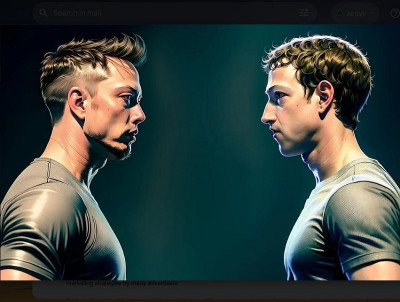
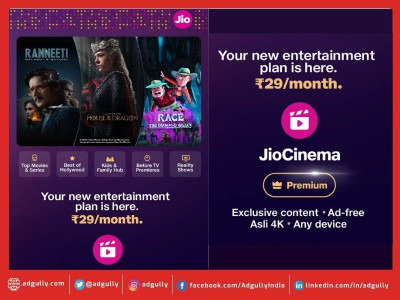


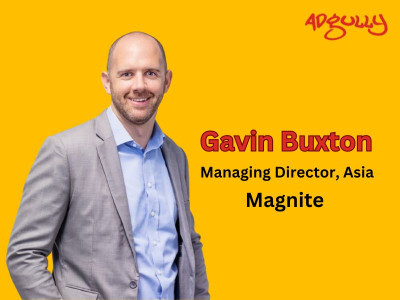
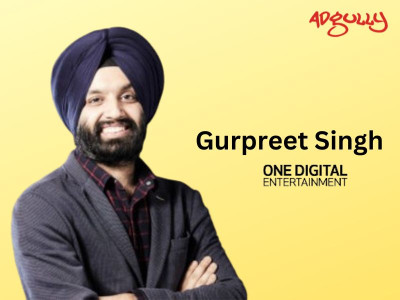

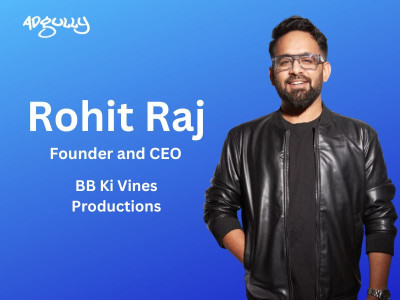



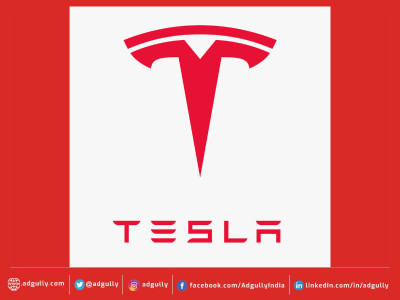
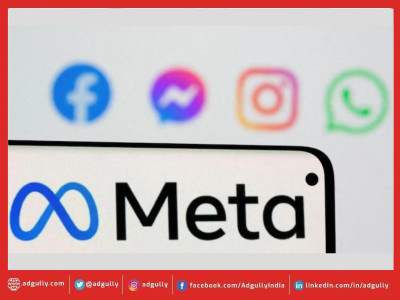


Share
Facebook
YouTube
Tweet
Twitter
LinkedIn